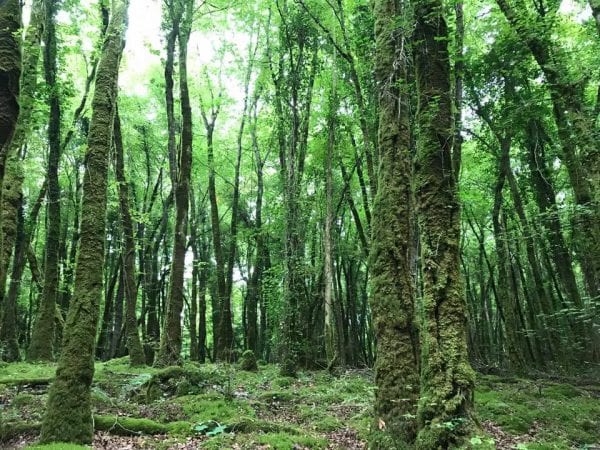Dear monks, artists and pilgrims,
During this Jubilee year of sabbatical we are revisiting our Monk Manifesto by moving slowly through the Monk in the World retreat materials together every Sunday. Each week will offer new reflections on the theme and every six weeks will introduce a new principle.
Principle 6: I commit to rhythms of rest and renewal through the regular practice of Sabbath and resist a culture of busyness that measures my worth by what I do.
Listen to the audio version below.
 We live lives stretched thin by doing. “I’m so busy” becomes either a badge of pride or a lament depending on which circles you run in. Our calendars are booked solid and we continue to take on more and more. There is so much to do: earn a living, nurture our relationships, care for our companion animals, exercise, cook meals, clean the house, and I am sure you can add a dozen more things to that list.
We live lives stretched thin by doing. “I’m so busy” becomes either a badge of pride or a lament depending on which circles you run in. Our calendars are booked solid and we continue to take on more and more. There is so much to do: earn a living, nurture our relationships, care for our companion animals, exercise, cook meals, clean the house, and I am sure you can add a dozen more things to that list.
We are given the message at every turn to spend more money and so we end up working longer hours to pay the rising bills. And then one day we look at our life with exhaustion and wonder how we got to this place. Our lives are so overflowing that we never have time to really reflect on whether this is really how we want to spend our time.
Out of this frenzy of commitments rises the call to practice Sabbath. And if you are anything like me, you hear that word and immediately shake off the possibility because there is no way you could imagine actually stopping for a day.
Several years ago I read this quote by Thomas Merton from his book Conjectures of a Guilty Bystander and it stopped me in my tracks.
“The rush and pressure of modern life are a form, perhaps the most common form, of its innate violence. To allow oneself to be carried away by a multitude of conflicting concerns, to surrender to too many demands, to commit oneself to too many projects, to want to help everyone in everything is to succumb to violence.”
Merton’s words are directed toward people working for peace and justice. He describes the ways in which we participate in our culture’s push toward productivity as a form of violence to our bodies and spirits. There are physical impacts, the way we push ourselves can lead to serious health complications. There are social impacts; we are always feeling overwhelmed and do not have the time to sit and reflect upon complex problems of our lives. We begin to lose the sense that we can do anything constructive to address larger social issues. There are spiritual impacts, our spiritual life becomes focused on another form of doing rather than being in the presence of God. Even with prayer, it can become another thing to get done.
Being constantly busy is not only damaging to our bodies with their needs for rest, and our spirits with their needs for renewal, but also for our society at large. We have become so overwhelmed by life that our ability to discern possible solutions to the complex problems of our age has become severely compromised.
When I first read Merton’s words, I suddenly saw the crazy pace of my life as woven together with the violence of our culture. I realized if I was committed to a different way of being in the world, my calendar and priorities needed to reflect it. Even our churches embrace this kind of compulsive busyness by filling every free moment with events and stretching their ministers and leaders too thin until they collapse from exhaustion.
Sabbath is an ancient practice, appearing in the first creation story of the Hebrew Scriptures, which climaxes on the seventh day. Having created everything, God rests, and blesses this day, and makes it holy declaring just how very good creation is. Resting, God takes pleasure in what has been made; God has no regrets, no need to go on to create a still better world. The word Sabbath comes from the Hebrew word Shabbat, which means to cease.
What would it mean for you to cease? To set it all down? To pause for a while and let yourself do something utterly not useful.
Yet our human compulsions drive us to keep going, to believe that the work is never finished and that the world will fall apart without us. It is this kind of deep-rooted arrogance that is killing us. When we follow the holy patterns of work and rest offered by the Sabbath, we restore our dignity and claim our freedom from the tyranny of doing. When the Israelites are released from slavery in Egypt, honoring the Sabbath becomes a symbol of their freedom. Slaves are unable to rest. Sabbath is both about holiness and justice.
I am blessed with close friends who are Jewish and I have been invited many times to a Friday night Shabbat dinner. Together we light candles, sing blessings, break bread, and welcome in the gift of this sacred time to rest. We remember what it is to be free. It was this friendship and experience that inspired my husband and I to claim our own Sabbath practice. We are not always successful, I too get caught up in the compulsion of getting things done. This is why we always begin again in any practice. Every time we fall away, we return.
During Sabbath we enter into rest and stillness, releasing our doing, and offer ourselves a time to integrate the blessings and challenges of the week into our psyches.
In the practice of yoga, it is said that the most important pose of all is the final one, savasana, or corpse pose. This is the place where all that has come before is integrated. In this place of rest we can bring all of our striving and work to a place of wholeness.
Just as the other poses don’t hold meaning without that final pose of rest, so our work becomes an exercise in endless futility if we never offer ourselves those times to integrate, to bring in all of our experience and doing and allow ourselves to be for a while.
There are even secular movements these days for what are called technology Sabbaths. We live in such a wired and connected world that it is nearly impossible to truly unplug unless we do so with intention.
For the ancient monks, Sabbath is rooted in the practice of humility. By letting go of our doing we acknowledge that we are not the source of creation. We remember that consumption is not the purpose of our lives. Theologian Monica Furlong describes the belief that life cannot go on unless we work ourselves beyond our means is a form of megalomania, ‘a pathological state which must be fought, in ourselves, our friends, and our nearest and dearest’. As our exhausted minds and bodies are allowed to rest we begin to discover more important and life-giving goals than productivity.
Being a monk in the world means making time for silence and solitude. A holy pause to reflect on life’s meaning. The monk in the world stays committed to the contemplative way through regular practice, but part of that practice is creating spaciousness and joy. We can allow these desert practices to become another form of competition and productivity, measuring our self-worth by how often or how well we do them. Or we can remember that ultimately it is about something much bigger than ourselves. Sometimes we can only remember the grace available to us when we let go of all of our doing, and rest into our being.
When we practice Sabbath we have time to remember who we really are, underneath the surface of busyness and frantic doing. We touch down into the grace of being. We can listen to the call of our lives toward something larger than just struggling to make ends meet.
Benedictine sister, Joan Chittister writes:
What does real life look like to you in your best moments, your quiet moments? What is it that you yourself actually want–down deep–and how much are you willing to give up to get it? What really gives you life? It’s time to consider what makes a thing life-giving and the point when even the life-giving becomes death-dealing for you.
Then it is time to define life differently, perhaps. It’s the moment to put down what it is we’re doing that can be done but does not really need to be done, at least not by us. We need to ask ourselves what it is that we really do not want to do so that everything else we do can be done with more energy, more quality, more inner peace. . .
. . . In the whirlwind of life, in the hurly-burly of things and people and work, we risk the loss of life itself. We risk the loss of focus. Suddenly, we one day realize, we don’t know what our lives are actually about anymore, except that they are about too much. We risk the loss of relationships. We get too busy, too scattered, to attend to the truly human intimacies we need if we are to stay in touch with what it means to be human. We risk the loss of balance. We risk the loss of direction.
Her words are really about the gift of Sabbath which really offers us a place to rest, and an inner compass where we can listen.
I believe there is both a sacred yes and a sacred no. We often think about saying yes as part of responding to your call to a bigger life in this world. But the no is just as essential. When we say no we set healthy limits and protect time for what is most important to us.
What I discover when I truly allow myself to experience the gift of Sabbath is that I am able to return to my work with more focus and delight, I actually get more things done and done well. But I don’t want to give the impression that Sabbath is some kind of productivity tool. I practice Sabbath to embrace my human limits and the gifts of rest.
Sabbath gives us space to discern whether there are things we actually want to keep doing or whether we can let them go. When I practice Sabbath, I commit to living in a way that is different from the dominant culture. This is part of what being a monk in the world means – to witness to an alternate way of being, one that is slower, more spacious, more reflective, more generous.
With great and growing love,
Christine
Christine Valters Paintner, PhD, REACE
Photo © Christine Valters Paintner


